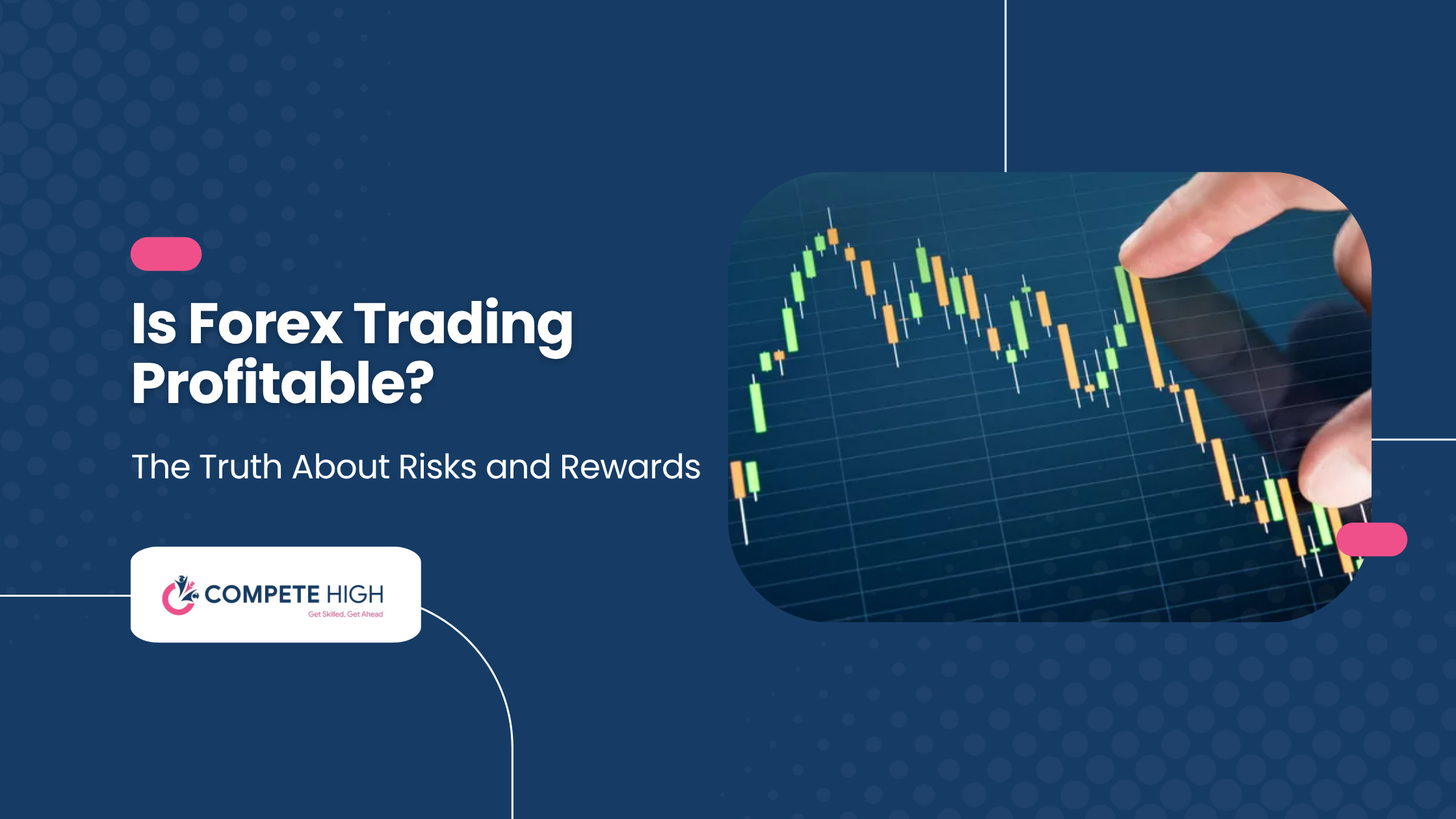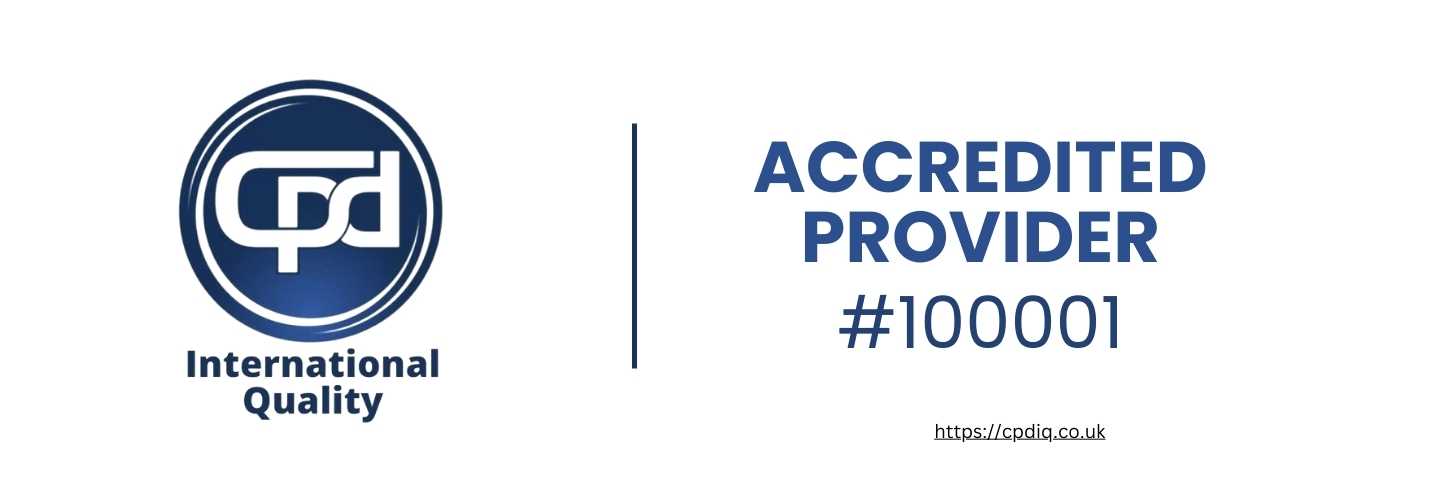
Is forex trading profitable? Stories about making money trading forex flood the internet, promising great returns from trading currencies. It seems easy: trade currencies on your lunch break and quit your job on the spot. Before people get scammed, the most asked question needs to be answered: Is forex trading profitable?
To get the answer, one needs to ignore the hype and get the facts. Forex is short for foreign exchange, and it is the largest market in the world, trading several trillion dollars and currencies every day. It enables countries, businesses, banks, and individuals to trade and profit from the differences in the costs of different currencies. Many people ask, is currency trading profitable, or even, how lucrative is forex trading, given the scale of the market.
In theory, the forex market is easy to trade: buy low and sell high. However, the truth is that no market is easy to trade, and the forex market is no exception. Yes, it is true, some people make a profit and some make it their full-time job, but it is important to remember the actual reward is much lower than most people think, and the risk is much greater than most people think. This raises the question again: is forex trading lucrative, or is it just overhyped?
Quick Overview
Forex trading can be profitable, but it requires education, discipline, and a solid strategy. You’ll learn why understanding risk management, consistency, and realistic expectations is essential for success.
Key Points Covered:
✅ How forex trading profitability depends on skill, strategy, and mindset
✅ Why forex trading is not gambling if done professionally
✅ The importance of starting small, practising, and managing emotions
✅ What beginners need to know to improve their chances of profit
✅ Realistic expectations about profits and risk in forex trading
This guide aims to cut through the marketing hype and answer the question: "Is forex trading profitable?" We will investigate what makes this market potentially lucrative, and what makes it so risky, while also outlining what you will realistically need to be successful in this market.
Is Forex Trading Profitable?
The short answer is: Yes, you can make a profit in forex trading, but the reality is that a profit is not earned by everyone. So, while many ask, "Is forex trading profitable?" or even "Is currency trading profitable?", the answer depends heavily on the trader’s skill, strategy, and discipline.
The perceived accessibility of the forex market is one of its greatest attractions. You don’t need a degree in finance, nor do you need millions in starting capital to get going. A lot of brokers will allow you to begin with £100 or £200, and the market is open 24 hours a day, five days a week. This ease of market entry draws in thousands of new traders every year.

But here’s the reality: while entering the market is easy, staying profitable over the long term is extremely difficult. Most research, as well as broker reports, suggest that 70%–80% of retail forex traders lose money. The reasons vary and often include a lack of market knowledge, weak risk control, unrealistic expectations, and emotional decision-making.
As explained earlier, forex trading can be profitable, but it’s important to understand how lucrative forex trading really is before diving in. So, is forex trading lucrative, or is it just a high-risk endeavour dressed up by marketing? The truth is, how lucrative forex trading is depends on how well-prepared you are. It takes discipline, patience, solid education, and a thoroughly tested trading plan to stand any realistic chance of long-term success.
Is Trading Forex Profitable?
Another way to ask the same question is, "Is trading forex profitable?" Even if it feels repetitive, there is a fundamental underlying issue: people are looking for a guarantee that this is not another financial trap. It's no surprise then that so many are searching: is forex trading profitable, is currency trading profitable, or even how lucrative is forex trading?
Analysts frequently cite the ‘zero-sum game’ in the forex trading context. This refers to the scenario where, if one trader on a position profits, another trader on the opposite side loses – hence the term ‘zero-sum’. When you also factor in transaction costs (spreads, commissions, and overnight fees), it’s easy to see how the odds are stacked against beginners, especially those without a clear plan.
So, is forex trading lucrative? The answer depends on several key factors. Profitability in forex is based on the following:
- Knowledge and Education – Learning the different aspects of the forex market, including how to conduct technical analysis and interpret fundamental news events.
- Capital – Having more money to trade means you can afford to take on risk and potentially earn higher returns, though losses can also increase.
- Risk Management – This includes using stop-loss orders and ensuring that you do not risk more than a small percentage of your account on any single trade.
Consistency
Consistent, steady progress – rather than short bursts of explosive growth – is the key to sustaining long-term profitability in forex trading.
Long-term viability and profitability come from establishing a system that offers even a slight edge, and working within that system systematically and with discipline to apply that edge over time.
Is Currency Trading Profitable?
Currency trading is essentially synonymous with forex trading, although it is important to note that forex trading is not like trading stocks or commodities.
Inflation, interest rates, and other macroeconomic and political factors influence forex trading. Consider how a central bank raising interest rates can affect the value of a currency. The currency may appreciate because higher interest rates attract investors. However, political volatility or weak economic indicators may result in depreciation of the currency.
Traders can take advantage of these fluctuations in value and volatility to make profits. Unlike other markets, the forex market does not limit your ability to profit in only one direction. It is highly liquid, with opportunities in both rising and falling markets. A trader may profit from a rise in the market (going long) or a fall (going short).
Challenges: The same volatility that breeds opportunity can wipe out unseasoned traders in no time. A single unforeseen news announcement can move a currency pair by several hundred pips in just a few minutes, wiping out potential gains.
So, is forex trading profitable? For traders who approach it professionally—studying the economic calendar, managing risk, and building a sound strategy—forex trading can indeed be profitable. But for the unprepared, it can quickly resemble gambling more than investing.
Is Forex Trading Lucrative?
When people first discover currency trading, they often see it as a quick and effortless way to make money. You’ve probably seen social media “forex gurus” flaunting their profits, cars, and holidays. But is forex trading lucrative, really?
The truth is, forex can be profitable, but for most, it isn’t. That’s largely because most retail traders do not approach it professionally. Rather than building skills and strategy over time, many jump in with unrealistic expectations—assuming quick gains with minimal effort. As a result, they treat trading like a get-rich-quick scheme rather than a long-term discipline.
Managing expectations is crucial. Yes, there are full-time traders who earn a decent living—and even some who earn extraordinary incomes—but these are exceptions, not the norm. These individuals usually have years of experience, sufficient starting capital, and a deep understanding of risk management.
People often ask, how lucrative is forex trading, or even, how much do forex traders make a month? The answer varies greatly. While a few successful traders might make thousands or more per month, many others either break even or lose money. It depends heavily on skill level, account size, market conditions, and emotional control.
So, while it’s true that forex can be profitable, it’s critical to exercise caution, educate yourself, and set achievable goals. Expecting overnight riches is a sure way to be disappointed.
How Profitable is Forex Trading?
To answer this, we need to look at what makes forex trading profitable, and also extremely risky. Many new traders wonder: is forex trading profitable, is forex trading lucrative, or even how much do forex traders make a month—but the answers depend on several key factors.
The Use of Leverage
One of the best features of forex is the use of leverage. Forex traders can control positions which are much bigger than their initial deposit. For instance, if a leverage of 50:1 is offered, a deposit of £1,000 can control a £50,000 trade.
- Advantage: Because of this, small price movements can cause big profits. If a trader is highly leveraged, a currency pair that just moves 1% can double their account.
- Disadvantage: But this can really work against you. That same 1% move can go against you and wipe your account clean.
This is what makes forex trading dangerous. Leveraging is a common mistake that beginners make, and it can result in big losses. When asking how lucrative is forex trading, this aspect of leverage is key—it offers big rewards, but even bigger risks if used recklessly.
Market Liquidity and Volatility
Being the most liquid financial market in the world, the forex market captures more than $6 trillion worth of trades per day. Given this level of market liquidity, trades can be executed in and out of positions fast and with little slippage.
Growing volatility is the consequence of increased liquidity. Markets can react sharply and wildly to monetary policy announcements or politically unexpected news. Beginners, who most likely are unprepared, can find this worsening volatility extremely harmful, while experienced traders can find this as an opportunity. Despite the risk, this is also why some argue forex trading is lucrative under the right conditions.
Time Commitment
Time is definitely not the only factor, but it has a profound influence on the profitability of the forex market. Those who allocate only a few hours a week to this market as their hobby will not aim for substantial profits. Professional traders need to allocate their time properly towards planning, analysing, and reviewing their trades. This commitment also plays a role when considering how much forex traders make a month, as profits are closely tied to effort, discipline, and consistency.

In summary, the potential for high profits in forex trading exists, but it is equally paired with the potential for great loss. So, is forex trading profitable? Yes, it can be—but only for those who understand and manage the risks wisely.
How Much Do Forex Traders Make a Month?
How much do forex traders make a month? What is the monthly profit that forex traders generate? This is a question that most new traders ask. It’s also a question that’s notoriously difficult to answer, because profits are highly dependent on the trader’s experience, the profit-making techniques used, the risk level taken, and the available financial resources. Many are also trying to understand how lucrative is forex trading, especially when compared to other income streams.
The Range of Possible Outcomes
When beginners start trading, a lot of them end up losing money and, unfortunately, even lose their entire accounts within a few weeks. This often leads to doubts, such as, is forex trading profitable at all?
Breakeven Traders
A smaller percentage of traders fall within the breakeven range. They simply cover their costs but earn no meaningful profits. Still, some of them continue trading in hopes of improving their strategies and eventually becoming consistently profitable.
Profitable Traders
One of the very few successful groups of traders consistently earns profits, whether as a side income or as their main income. For this group, the answer to is forex trading lucrative may be yes, but only under specific conditions and with significant effort and discipline.
The Fallacy of Exact Numbers
Some articles suggest how simple it is for traders to earn “£5,000 a month” or “10% weekly returns,” but such claims are often unrealistic. Even active, experienced traders aim for more reasonable returns of 2–5% a month. So, how much do forex traders make a month in real terms? It depends on both the percentage return and the capital invested.
Consider the following example:
- A trader working with £5,000 of capital and a 3% monthly target would yield £150.
- A trader with £50,000 of capital at the same return rate would yield £1,500.
This shows that starting capital influences profit potential more than percentage returns alone.
Consistency vs. Big Wins
Traders just starting out are often drawn to the idea of achieving forex profits through large, inconsistent one-time wins. However, sustainable profitability comes with consistency. A trader who earns 2% a month and avoids large losses will likely outperform a trader who takes high risks for a 20% monthly return but ends up blowing their account. This brings us back to the core question: is forex trading profitable in the long term? Yes, but usually for those who prioritise consistency and risk control.
Hidden Costs
Profitability isn’t just about measuring gross returns. Brokers impose costs such as spreads, commissions, and overnight fees, which reduce overall returns. For traders who focus on small scalping trades, transaction fees can significantly eat into real earnings.
Putting It Together
So, how much do forex traders manage to make a month? The answers vary from “losing money” to “life-changing profits,” with most people ending up somewhere in the middle. For the average retail trader, consistently achieving modest monthly returns should be considered a success. For disciplined traders with larger capital, forex can provide a comfortable income.
But the most important thing to understand is this: is forex trading profitable? Forex does not provide guaranteed income. Assuming that income will always be the same, like a job with a fixed monthly salary, is the wrong approach. Instead, consider it a business with fluctuating income that requires risk management and patience for long-term profitability, rather than short-term gains.
Forex Trading Profit Per Day
Many people new to the forex market have one question in their mind, “How much forex trading profit per day can I make in forex?”, expecting to hear something similar to the paycheck they earn in their regular jobs. However, the truth is, profits are not guaranteed every day. You can make a profit one day but end up incurring losses on another, or no profit at all.
So, What Determines Profit, or Loss, on Any Given Day?
Unlike a regular office job, trading income is unpredictable since trading activities are influenced by multiple factors. Here are a few:
- Market Conditions: Each day, different market conditions can be presented. Highly volatile markets can give traders multiple profits. Other times, the market is steady, and opportunities to profit are scarce.
- Trading Strategy: Different trading styles can be employed by traders. For example, scalpers are traders who engage in multiple small trades focusing on the profits of each. On the other hand, swing traders employ a strategy of closing their trades after a few days.
- Risk Management: Different traders employ different trading styles based on their risk appetite. As an example, someone who risks 1% of their account on each trade will not experience the same swings as someone who risks 10% on each trade.
Consistency Over Daily Wins
Understanding that success for a trader entails a consistent approach, and not simply daily wins, is crucial to becoming a trader. Consistency is the hallmark of a professional trader. Someone who loses consistently and spends all their time chasing daily profit is less than a loser and must seek other means of profit generation.

For example, in a three-day trading cycle, Trader A profits £200 on the first day, loses £300 on the second day, and then profits £100 on the third day. If this were a trading cycle of five days, Trader A would have been profitable on two days. This is misleading since, overall, Trader A is operating at a deficit.
Trader B, on the other hand, profits £30 consistently at the end of the month, and is termed as looking boring in comparison. Building sustainable trading growth is key.
The most common question in trading is profit generation on a daily basis. Unfortunately, this question lacks a correct answer. The correct question is profitability attained at the end of the month and year. This question is key in forex trading and goes to the heart of is forex trading profitable. It is also important to understand forex trading profit percentage and, for new traders, whether is forex trading profitable for beginners.
Forex Trading Profit Percentage
Another way people evaluate forex profitability is through percentage returns. This method is often more useful than calculating forex trading profit per day in pounds or dollars, as percentages measure profit in context to the capital it was earned against.
Profit Percentage Realities
- Professional Traders: The average professional trader attempts to earn 2-5% in profit monthly. This may not seem appealing, but when compounded over the year, it amounts to more than expected.
- High Risk Traders: Riskier retail traders tend to boast about getting 10%-20% monthly returns. This is attainable but highly improbable due to the probability of dangerous and unsustainable risk.
- Beginners: The reality is, most beginners lose money due to improper risk control. Hence, the forex trading profit percentage in their early days is most certainly negative.
Dangers of Targeting High Profit Percentages
Let’s say there are two traders, each starting with £5,000.
Trader A targets 3% a month, which is £150 a month. After 12 months and compounding, their account continues to grow progressively.
Trader B targets 20% a month, which is £1,000 a month. This is achievable for a few months, but the aggressive risk and high leverage will most likely cause considerable losses in due time.
High returns could result from reckless gambling or excessive leverage. It’s much safer and realistic to seek steady, small growth of a steady nature.
Every trader benefits from compounding growth. Even small percentages perform remarkably. A trader who averages 3% growth a month will approximately grow their account by 36% annually. However, with compounding, their account will double in just over three years. Slow and steady wins the race.
Is Forex Trading Profitable for Beginners?
This is a fundamental question that we need to rectify. Trading Forex involves a lot of factors, and a beginner can definitely profit from it, but not without the proper guidance.
Why Do Most Beginners Lose?
This is perhaps the most critical question of all. Is forex trading profitable for beginners? The honest answer is: Yes, but it’s rare without proper preparation.
- Lack of Education: Many new traders jump in without learning the basics of forex, leverage, and risk management.
- Overconfidence: Seeing a few early wins, they increase their risk, only to suffer large losses later.
- Emotional Trading: Fear and greed drive impulsive decisions, such as chasing losses or holding onto losing trades too long.
- Unrealistic Expectations: Beginners often expect to double their money in a month, which pushes them toward reckless trading.
What Beginners Can Do to Increase Profitability
- Start with a Demo Account: Practising with virtual money helps beginners learn the mechanics without risking real funds.
- Focus on Education: There are countless free and paid resources—courses, books, webinars—that teach everything from chart analysis to risk management.
- Use Strict Risk Management: The golden rule is never to risk more than 1–2% of your capital on a single trade. This protects accounts from being wiped out.
- Keep Expectations Realistic: Beginners should focus on preserving capital and learning consistency, not chasing big profits. Treat the first year as an education phase rather than a profit-maximising phase.
- Develop Emotional Discipline: Successful trading requires patience and the ability to stick to a plan even after losses. Beginners who can master their emotions are already ahead of most.
Success Stories Do Exist
Though most newcomers lose, that doesn’t mean there is no chance of success. Many current professional traders, for instance, started as struggling beginners. With education, determination, and patience, they built profitable systems and now trade for a living. So yes, is forex trading profitable for beginners? It can be — trading professionally is a skill that must be mastered.

Is Forex Trading Worth It?
After weighing the pros and cons, you might still wonder: Is forex trading worth it? It all depends on your values, goals, and commitment!
Reasons It Can Be Worth It
Most new financial markets require huge starting investments, but not Forex trading. Beginners can start small and gradually learn how to make profit on forex.
Flexibility also adds to its worth — the Forex market is open 24 hours a day, five days a week. This means you can trade during your job, studies, or other commitments.
Profiting from Forex trading is possible. It can become a steady source of income, especially with great skill and risk management. This shows that is forex trading profitable when approached correctly.
Reasons It May Not Be Worth It
Most beginners who do not educate themselves or maintain discipline lose money. The risk of not profitably trading Forex is huge.
Consistency can cause emotional turmoil. Trading can become exhausting, and you may lose enjoyment in it.
Most people claiming Forex offers "easy money" don’t realise the extent of work and commitment it takes.
You can profit from Forex trading, but only if you understand the true definition of worth!
Is Forex Trading the Same as Gambling?
This is a good question, and here’s why some people think so. Forex can resemble gambling since you risk money (on whether a currency will go up or down) and hope to walk away with more.
However, the difference lies in strategy and control.
Reasons Forex Trading Might Seem Like Gambling
- New traders frequently lack a strategy and just hit buy/sell buttons at random, which can lead to losses and give the impression of gambling.
- Traders often use high leverage, increasing the potential for huge gains or terrible losses, akin to a gambling spree.
- Traders can act irrationally. Getting overly emotional or “chasing losses” can lead to behaviours associated with gambling.
Reasons Forex Trading Isn’t Gambling
- Traders can conduct analysis by using techniques such as technical analysis, alongside economic factors and risk management strategies, to make sound decisions.
- Traders maintain control by employing disciplined strategies, unlike gambling where outcomes are mostly chance-driven.
- Professional traders devise systems that provide a small but consistent winning edge over a long period of time.
Thus, while gambling can provide some “entertainment,” poorly designed forex strategies can result in negative “entertainment” too.
Making Money on Forex
Having enthusiasm is great, but if profitability is your goal, you must have a proper plan. Here are some essential steps to build your plan and understand how to make profit on forex:

Invest in Education
Start learning the basics of forex. Understand how currency pairs relate to one another, how to use candlestick charts, moving averages, and how to identify swing points and key levels in the market. This foundation is crucial in answering the question: Is forex trading profitable?
Practice with a Demo Account
Set up a demo account and practise all the forex strategies you plan to use. This is how all traders train before they begin trading with real money. It helps you gain confidence without risking capital.
Develop a Trading Strategy
Decide whether you will be a day trader, swing trader, or position trader. Backtest your trading plan using historical data before applying it to live markets. Having a tested strategy is a major factor in determining is forex trading worth it for you.

Use Strict Risk Management
Always analyse the risk your strategy entails. Never risk more than 1-2% of your trading account on a single live trade. Use stop-loss orders to cap potential losses. Accept that losses are part of trading — managing risk is key to long-term success.
Keep Your Emotions in Check
Discipline is what separates profitable traders from unsuccessful ones. Avoid revenge trading, overleveraging, or abandoning your trading plan due to emotions like fear, greed, or frustration. This emotional control is what differentiates trading from gambling, addressing the common question: Is Forex trading gambling?
Track and Review Your Trades
Keep a detailed journal documenting every trade. This will help you identify your strengths and weaknesses and improve your trading performance over time.
Start Small and Grow Steadily
Begin with small amounts and gradually increase your trading size as your skills and confidence grow. This steady approach improves your chances of success and helps safeguard your capital.
Taking care of these principles won’t eliminate risk entirely, but it will significantly improve your odds of becoming profitable in the long haul. So, if you’re wondering Is forex trading profitable, or whether is forex trading worth it, following these steps is crucial to your journey.
Final Words
The short and most accurate answer is yes, forex trading can be profitable, but only under certain conditions. It is not guaranteed income and definitely not a quick and easy money scheme.
Forex can be profitable, but most beginners and new traders will lose money. Daily profits are often inconsistent, but steady growth is possible. Losses are also a real possibility.
Profits will not be in the tens or hundreds of per cent. Instead, they tend to be small, steady, and powerful, mostly through compounding.
Most beginners will lose money within just a couple of days of trading. The whole forex system is not gambling — far from it — if you have a reliable system. However, it becomes gambling if you trade emotionally and recklessly.
If you want to start trading, the most important point is that forex trading is worth it only if you treat it like a business, not a bet or lottery game. With the right mindset, approach, and dedication, forex can be a profitable venture and a way to improve self-discipline.
If you’re still asking, “How do I profit on forex?” the answer is fairly simple: it’s all about being educated, having a solid plan, and exercising a great deal of patience. People who try to win big in a hurry often end up losing everything. Those who strive to master the skill are the ones most likely to succeed.
So, if you are ready to learn, practice, and build steadily, then forex trading is a journey worth taking.










